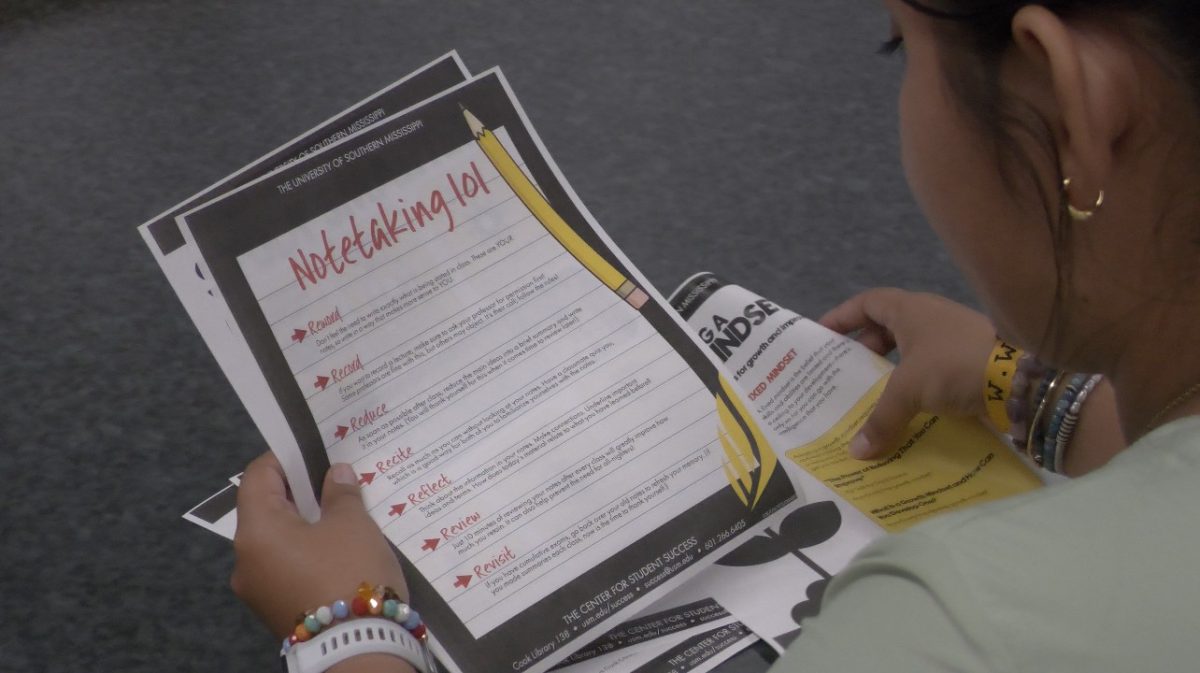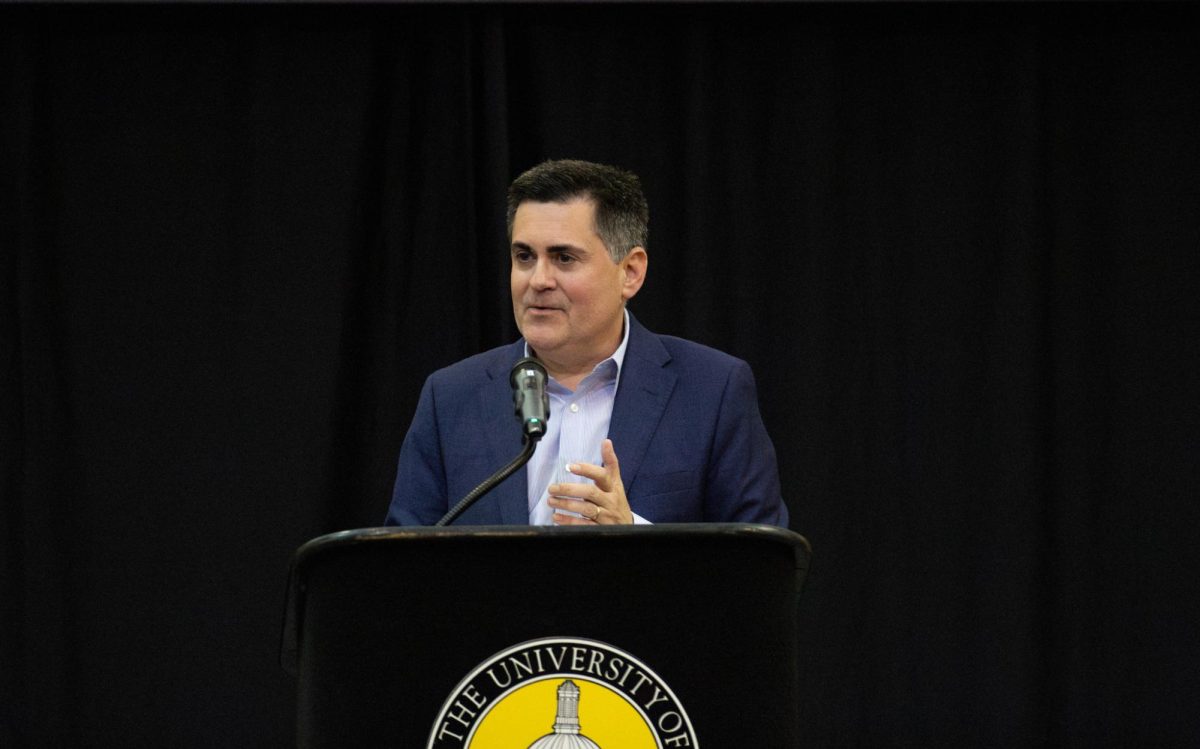When the Army ROTC program at The University of Southern Mississippi discovered it would be one of 13 programs nationwide closing by 2015, state and university officials immediately began the process of appealing the decision.
Friday morning, Gov. Phil Bryant, University President Rodney Bennett and other officials spoke at a press conference on the steps of Southern Hall describing the plan of action regarding the appeal.
In a letter addressed to John McHugh, Secretary of the Army, Bryant expressed his concern that more than half of the 13 ROTC program closures are located in the Southeastern United States.
“We will stand, we will work, we will do everything necessary to restore this great program,” Bryant said.
“I intend to do all that I can to see that this program continues,” Bennett said. “Along with Governor Bryant, we will pursue any and every avenue to appeal this decision.”
Golden Eagle Battalion commander Lt. Col. Joseph Worley said the Army also looked at geographic locations of all 273 programs nationwide.
“(The closure) is not a reflection of the quality of the program… We have a very high quality academic program,” Worley said. “These changes allows the United States Army Cadet Command to reduce our footprint and make more efficient use of our available resources.”
Worley said that many of the freshman and sophomore cadets would be transferring to other institutions with the ROTC program in order to continue advancing their future careers in the Army. He said some cadets may choose to leave the ROTC program entirely and may take a different route when joining the Army, while others will work to find a program and university that will suit their future military careers best.
“Our job right now is two-fold: We are continuing to train and develop our juniors and seniors, and help our freshman and sophomores to finish the semester first,” he said. “Alongside that, we will help them make the right decisions for their degree and their ROTC future.”
Freshman Cadet Ben Fagan said he was shocked by the decision to close the program.
“… I knew I would have to adapt as the Army changes,” he said.
Fagan, a cadet receiving the 4-year Army ROTC Scholarship, said he will continue his career as a cadet by transferring to another institution with the program.
“I’m looking into transferring to Brigham Young University, Clemson or Notre Dame,” he said.
Members of the Golden Eagle Battalion not only have to accept accept the program’s closure, but have to work around the impact of the recent government shutdown.
Worley said the shutdown has changed a number of things for the cadets and department staff. When the shutdown began, the two Department of the Army civilian employees working at USM were furloughed, but returned to work last week, he said.
“We aren’t able to use all of our training and logistical resources. We aren’t able to use our (four) vehicles. We can’t go train at Van Hook Golf Course – our local training area – so naturally this limits us some on our training,” he said.
He said the cadets, with a little creativity, are able to complete training exercises on campus that would normally be completed in a field or woodsy environment.
“Having to train on campus as made us adjust how we conduct training, especially for the MS III (junior) cadets,” said Senior Cadet Michael Carter. “We hope the shutdown ends soon so that we can utilize other training areas to provide even better training for our cadets.”
“Beyond the shutdown of the program, beyond the government shutdown that’s causing some restrictions on our training… The bottom line is I want the campus community and the Hattiesburg community to understand that we are doing our very best at producing qualified, smart, able-to lead soldiers and Army leaders,” Worley said.
According to Worley, five cadets are set to be commissioned into the Army upon graduation in December, and 12 are set to commission in May 2014.































